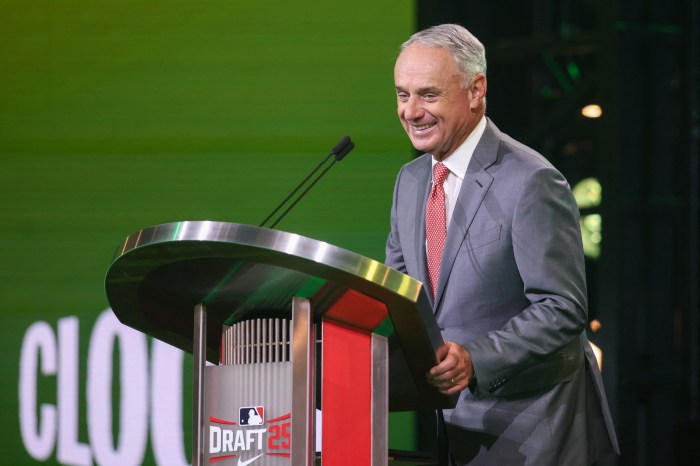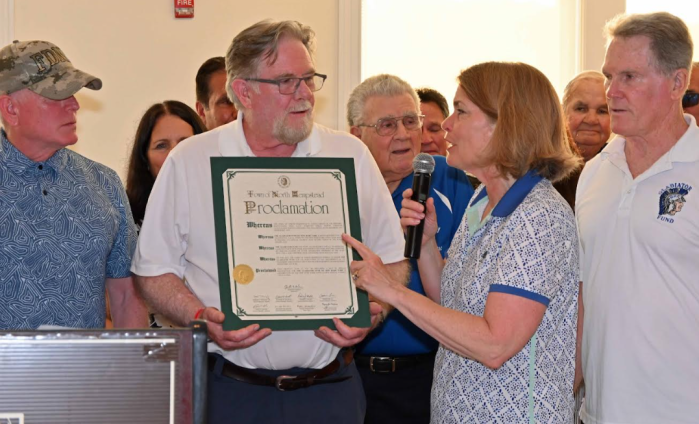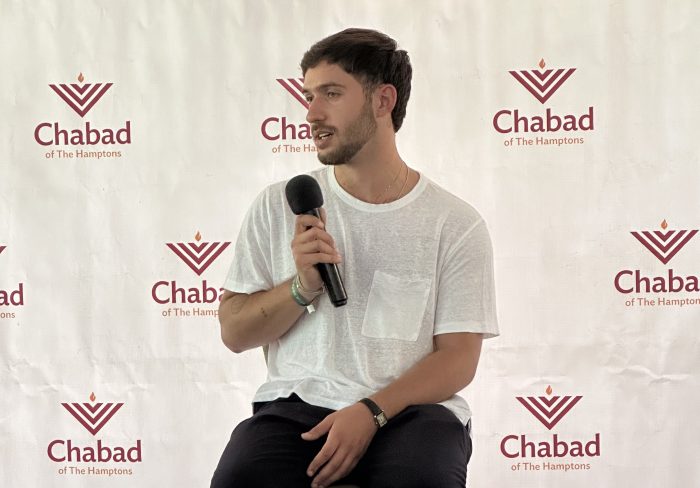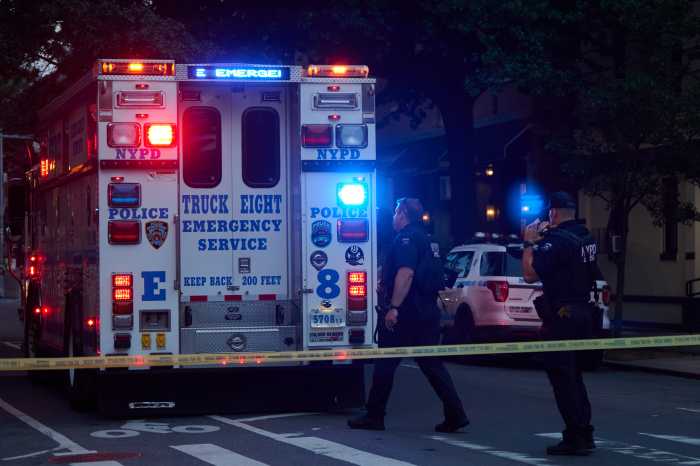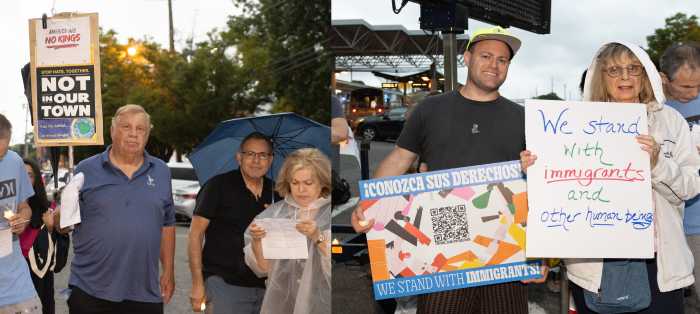Students learn recipe for a healthy lifestyle
The chef was busy sautéing onions, mushrooms and peppers while his sous chef prepared the wild salmon with Dijon mustard and a panko bread crumb topping. A few hours earlier the same team was busy inserting a lifesaving stent into a man’s heart. Dr. Kevin Marzo, aka the Cardiac Chef, is the chief of cardiology at Winthrop University Hospital. Marzo, along with his physician assistant Joe Dardano, was preparing a special meal for a very discriminating audience of teenagers.
The beautiful demo kitchen located at Hampton Major Appliances in Garden City was the site where Dr. Marzo and a team consisting of Dardano, Diane Bachor and Courtney Seck, (both members of the Winthrop University Hospital marketing department), were preparing a gluten-free meal for the Explorer’s Club. Forty high school students from Massapequa, Manhasset, Jericho and Garden City attended the event.
School to Career Coordinator Denise DeLury explained how the event got started.
“The Explorers Club is through Winthrop University so students who are interested in the health care field visit Winthrop once a month to learn about a different area of health care. The club has 50 members in grades 10-12 who are interested in the health care profession and it is a way to introduce them to all of the opportunities within the field” DeLury explained. “The particular club is for the health care field. We developed a special relationship with Winthrop when we met Diane Bachor and developed a partnership with them.”
As the students took their seats around the counter, Hampton owner Frank Ingraldi was asked why he’s been donating his space for this event for five plus years.
“We think that what the doctors are doing at Winthrop is a great thing and rather than have them rent a space or find one we would rather have them come here, as often as they want,” he said.
While onions and shallots sizzled in the saucepan, Dr.Marzo added ingredients of humor and wisdom as he gave a history lesson on gluten and its origins and the reasons why some people need to be on a gluten-free diet. He explained how certain people are sensitive to gluten and come down with a range of reactions that include abdominal cramps, arthritis, rashes or sometimes headaches. He also pointed out that with the proper diet changes, this condition can be curable. He introduced a relative in the audience who had a gluten sensitivity whose symptoms consisted of severe headaches that were cured when she became gluten free.
The Cardiac Chef showed the students the food pyramid chart and emphasized the need for the incorporation of more vegetables into their diet. He showed them how to read a label for the ingredients of salt and sugar and showed how water has zero calories as opposed to soda with 240 calories that are mostly sugar based. The students were taught how to create a salad dressing consisting of oil and balsamic vinaigrette versus using processed salad dressing that is packed with artificial ingredients.
A question and answer session followed addressing why people get heart attacks. Dr. Marzo then passed around a model of a stent and an aortic valve for the students to see what he deals with during the day as he tries to help people with too much plaque in their arteries and are heart attack risks. Further pushing the point home was a distinct visual aid of a picture of a plaque-clogged artery caused by eating unhealthy foods.
After an hour of cooking, medical education, and healthy living lessons, the students lined up for a delicious meal of mixed greens with pears, chicken cutlets, salmon, quinoa mixed with vegetables, new potatoes with herbs, asparagus tips and within 45 minutes, all plates were barren.
For Dr. Marzo, who heads up a busy practice, taking the time to do this for the students was a way of lending a hand at preventing future cases of heart disease.
“Treating disease after it occurs is challenging and frustrating and rewarding but sometimes it feels like you have lost your opportunity. When someone has a disease and you treat it, that’s called secondary prevention and it is challenging but sometimes people are set in their ways. So to prevent a disease is so rewarding because you are going to prevent people from having not only a heart event but other events such as orthopedic problems, sleep disorders and sometimes even emotional disorders related to bad eating habits,” he said before adding, “The time to intervene is when people are young and amenable to change and we are seeing it in society with more opportunities for healthy eating. College campuses are healthier. I think this is an opportunity to show students that the behavior that they adopt now as 16- and 17-year-olds will clearly impact them for a lifetime. Hopefully a few will be touched and spread the word on healthy and tasty nutrition.”





